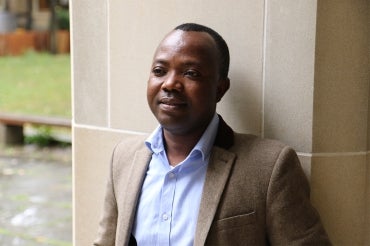With a focus on the Black community, U of T researcher to study food insecurity in Scarborough

Published: February 10, 2021
Suleyman Demi has dedicated his career to improving health equity and food security.
Now, as a researcher in the University of Toronto Scarborough’s Inclusive Excellence Postdoctoral Program, Demi will explore how COVID-19 has affected food security within the Black community in Scarborough.
“It’s my goal to determine if there is food security and how the pandemic has affected the community’s mental health and well-being,” says Demi, a post-doctoral researcher in the department of health and society at U of T Scarborough.
The two-year program was established to increase opportunities for post-doctoral researchers from under-represented groups, particularly Black and Indigenous researchers. It does this by providing $70,000 per year to U of T Scarborough’s departments, for up to two years, to support the hiring of post-doctoral researchers. It’s one of the latest initiatives in support of the campus’s five-year strategic plan, called “Inspiring Inclusive Excellence.”
Demi has partnered with the TAIBU Community Health Centre, a non-profit organization providing health-care and community services for Torontonians, to identify and address barriers to food security in the community they serve, with a focus on the Malvern neighbourhood.
“The available data shows that Toronto’s Black population are 3.5 times more likely to become food-insecure. There is a problem there and the question is why,” says Demi.
As an environmental activist and educator, inclusion has been the foundation of Demi’s work.
He graduated with a PhD in social justice education from the Ontario Institute for Studies in Education (OISE) in 2019. His research focused on the food security of Indigenous farmers in forested areas and urban farmers along Ghana’s coast.
As a researcher and international student, the fellowship program provides Demi with a community of academics with which to connect and share ideas, albeit virtually, during the pandemic.
“It’s a godsend to have a program that reflects the population we have,” says Demi. “As an international student, I’m able to conduct my research confidently.”



